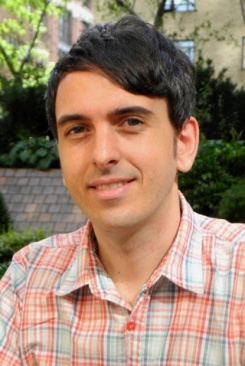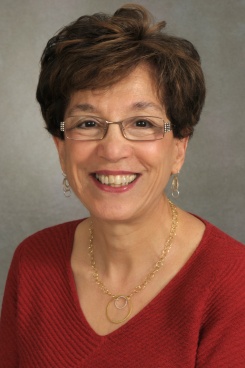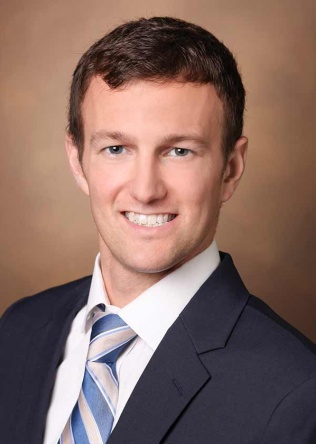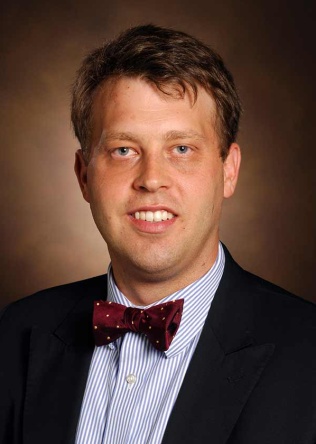Luton Lecture in General Psychiatry 9/22 | "Novel neural biomarkers of mood disorder risk: replication, treatment targets and next steps"
Psychiatry Grand Rounds 9/15 | Todd Woodward, PhD "Task-Based fMRI and the Symptoms of Schizophrenia"
Linda Sok, LMSW
Shannon Gould, MA, LPC-MHSP, NCC
Barbara Gay Lecture in Child and Adolescent Psychiatry 9/8 | "Disruptive mood dysregulation disorder: where did it come from and what can we do about it"
Mauli Shah, MPH
Ryan Darby, MD
Dr. Darby is interested in patients with symptoms at the border zone between neurology and psychiatry. Both neurological and psychiatric patients can share similar symptoms, including delusions, hallucinations, and antisocial and criminal behavior. This suggests that these symptoms may share a common pathway across different diseases. However, these different diseases often have neuroimaging abnormalities in different locations, making it difficult to understand how the same symptom could develop.
To address this problem, Dr. Darby helped to develop a new neuroimaging approach to localize complex behaviors to brain networks, rather than specific brain locations. He first studied this in patients with focal brain lesions, showing that brain lesions in different locations causing the same syndrome were all functionally connected to the same brain network. Dr. Darby’s current work is focused on applying this method to neurodegenerative disorders in order to understand why brain atrophy in different locations can cause the same clinical syndrome. He is using this method in combination with behavioral testing to study criminal behavior in frontotemporal dementia patients and delusions/hallucinations in patients with Alzheimer’s Disease, Parkinson’s Disease, and Lewy Body Dementia. Dr. Darby has received numerous awards for his research, including the Stanley Cobb Award from the Boston Society for Neurology and Psychiatry, the Young Investigator Award from the American Neuropsychiatric Association, the S. Weir Mitchell Award for Outstanding Early Career Investigator from the American Academy of Neurology, and the Norman Geschwind Prize in Behavioral Neurology. His work is generously funded by the Sidney R. Baer, Jr Foundation, the Alzheimer's Association, the BrightFocus Foundation, and the Department of Defense.
For more information on Dr. Darby’s research, please visit his lab website.
Ryan Darby is an assistant professor of neurology at Vanderbilt University Medical Center. He currently sees patients as the director of the Frontotemporal Dementia Clinic in the Department of Neurology at VUMC.
He received his undergraduate degree from Princeton University in psychology and neuroscience, and his medical degree from Vanderbilt University. He trained in neurology at Massachusetts General Hospital and Brigham and Women's Hospital as part of the Partners Neurology/Harvard Medical School program. He then received the Sidney R. Baer, Jr. Research Fellowship in Clinical Neurosciences at the Beth Israel Deaconess Medical Center. He simultaneously completed a clinical fellowship in behavioral neurology and neuropsychiatry at Beth Israel Deaconess Medical Center, Massachusetts General Hospital, and McLean Psychiatric Hospital in Boston.
Sam Sells, MD
Daniel Claassen, MD, MS
The theme of my work is to understand the biologic basis of how humans regulate of behavior, and the cognitive processes intrinsic to this nature. My research efforts are focused in patients that suffer from neurodegenerative conditions, and my current studies assess therapeutic outcomes in various neurodegenerative disorders, such as Parkinson, Huntington, and atypical Parkinsonian disorders (PSP and MSA). I also lead a basic research lab which investigates the neurobiological basis neurodegeneration through innovative cognitive neuroscience, neuroimaging tools, and biomarker discovery using patient biofluids.
For more on Dr. Claassen’s current research, visit the Cognition and Movement Lab page.
Dr. Daniel Claassen is a Professor of Neurology at Vanderbilt University Medical Center, with subspecialty training in movement and cognitive neuroscience. He specializes in the diagnosis and treatment of neurodegenerative disorders characterized by disruptions to cognition, behavior, and movement. He is the chief of the Behavioral and Cognitive Neurology Division.






